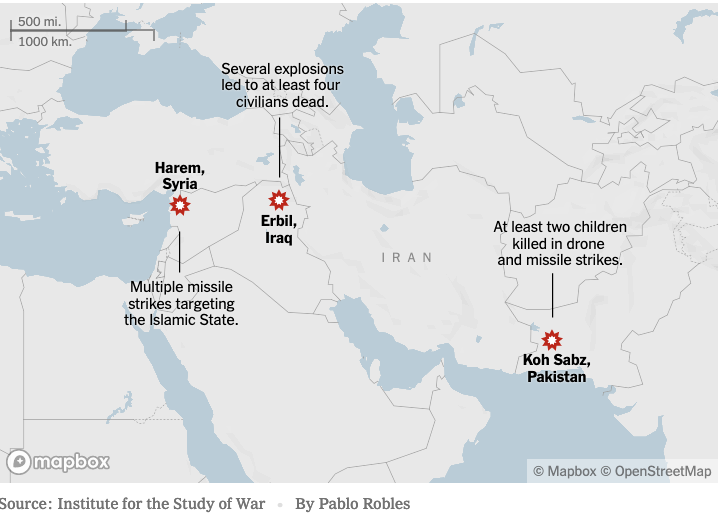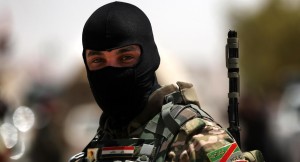Iran Says Missile Strikes Show It Will Be ‘Tough and Decisive’ With Foes
After hitting targets in neighboring Pakistan, Iraq and Syria with missiles, Iran talked tough on Wednesday, playing up — to friends and foes alike — not only its military capabilities but its determination to strike enemies at will. “We are a missile power in the world,” Iran’s defense minister, Mohammad Reza Ashtiani, told reporters after a cabinet meeting, according to state media. “Wherever they want to threaten the Islamic Republic of Iran, we will react, and this reaction will definitely be proportionate, tough and decisive.”
According to Iran, the attack in Syria targeted the Islamic State; the one in Pakistan struck another terrorist group, Jaish al-Adl; and the one in Iraq, in the northern Kurdish region, was aimed at what Tehran says is an Israeli base for intelligence gathering.
In the past, Iran has often lashed out at its enemies by proxy, relying on the armed groups it funds and supports — including Hezbollah in Lebanon, Hamas in Gaza and the Houthis in Yemen — and sometimes disavowing any involvement in attacks. But this week, Iran acted on its own and announced its actions, publicly framing the missile strikes as vengeance. It said it had attacked targets connected to major terrorist attacks, including one earlier this month that was the country’s deadliest ever. It also said it was retaliating for the assassinations last month of two senior Iranian commanders in Syria, for which Iran has blamed Israel.
More From The New York Times (subscription required):
























